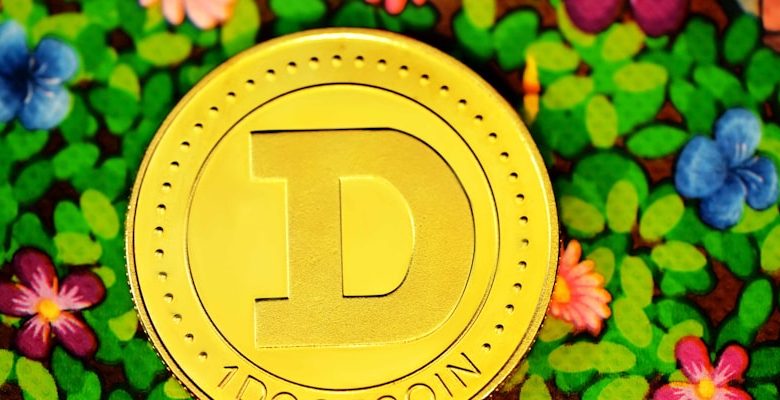The Role of Decentralized Exchanges in the DeFi Ecosystem

- Understanding Decentralized Exchanges (DEX)
- The Advantages of Decentralized Exchanges
- Challenges Faced by Decentralized Exchanges
- The Importance of Liquidity in DeFi Ecosystem
- Regulatory Concerns Surrounding Decentralized Exchanges
- The Future of Decentralized Exchanges in DeFi
Understanding Decentralized Exchanges (DEX)
Decentralized exchanges (DEX) are a crucial component of the decentralized finance (DeFi) ecosystem. These platforms allow users to trade cryptocurrencies directly with one another without the need for a central authority to facilitate the transactions. This peer-to-peer trading model offers users greater control over their funds and eliminates the risk of a single point of failure.
One of the key advantages of DEX is the enhanced security they provide compared to centralized exchanges. By removing the need to deposit funds into a centralized wallet, users can mitigate the risk of hacks and security breaches. Additionally, DEX typically do not require users to undergo lengthy verification processes, enhancing the privacy and anonymity of transactions.
DEX also promote financial inclusion by allowing users to access a wide range of tokens that may not be available on centralized exchanges. This opens up new opportunities for investors to diversify their portfolios and participate in emerging trends within the cryptocurrency market. Furthermore, DEX often offer lower fees compared to centralized exchanges, making them a cost-effective option for traders.
Overall, DEX play a vital role in the DeFi ecosystem by empowering users to take control of their finances and participate in a more open and accessible financial system. As the popularity of DeFi continues to grow, DEX are likely to become an increasingly important tool for traders and investors looking to capitalize on the benefits of decentralized finance.
The Advantages of Decentralized Exchanges
Decentralized exchanges offer several advantages that make them a valuable component of the DeFi ecosystem. One of the key benefits is the enhanced security they provide compared to centralized exchanges. By operating on a distributed network, decentralized exchanges eliminate the single point of failure that centralized exchanges are vulnerable to. This reduces the risk of hacking and unauthorized access to users’ funds. Additionally, decentralized exchanges give users greater control over their assets since they can trade directly from their wallets without needing to deposit funds onto the exchange.
Another advantage of decentralized exchanges is their commitment to privacy and anonymity. Unlike centralized exchanges that require users to go through a cumbersome verification process, decentralized exchanges allow users to trade without revealing their identity. This not only protects users’ privacy but also prevents their personal information from being exposed to potential security threats. Furthermore, decentralized exchanges promote financial inclusivity by enabling anyone with an internet connection to access their services without discrimination based on location or background.
Decentralized exchanges also offer improved liquidity compared to their centralized counterparts. Since decentralized exchanges operate on a peer-to-peer basis, users can trade directly with one another without relying on a central authority to match orders. This results in faster and more efficient trading, as well as lower fees since there are no intermediaries involved. Moreover, decentralized exchanges are resistant to censorship, ensuring that users can freely trade any asset without restrictions or limitations.
In conclusion, decentralized exchanges play a crucial role in the DeFi ecosystem by providing a secure, private, and efficient platform for users to trade digital assets. With their focus on decentralization, privacy, and inclusivity, decentralized exchanges are poised to revolutionize the way we think about traditional finance and empower individuals to take control of their financial future.
Challenges Faced by Decentralized Exchanges
Decentralized exchanges face several challenges that hinder their widespread adoption within the DeFi ecosystem. One of the main issues is the lack of liquidity compared to centralized exchanges. This limits the trading volume and can result in higher slippage for users. Additionally, decentralized exchanges often struggle with slower transaction speeds and higher fees due to the congestion on the Ethereum network.
Another challenge faced by decentralized exchanges is the lack of user-friendly interfaces. Many DEX platforms have complex and confusing layouts, making it difficult for newcomers to navigate and trade efficiently. This can deter potential users who are more accustomed to the user-friendly interfaces of centralized exchanges.
Security is also a major concern for decentralized exchanges. While DEXs offer greater security by allowing users to retain control of their funds, they are still vulnerable to smart contract bugs and hacks. This poses a risk to users’ assets and can erode trust in the platform.
Furthermore, regulatory uncertainty presents a challenge for decentralized exchanges. As governments around the world grapple with how to regulate DeFi platforms, DEXs must navigate a complex legal landscape that could impact their operations. This uncertainty can deter institutional investors and hinder the growth of decentralized exchanges.
In conclusion, while decentralized exchanges offer numerous benefits such as increased privacy and security, they still face significant challenges that need to be addressed to realize their full potential within the DeFi ecosystem. By overcoming issues related to liquidity, user experience, security, and regulatory compliance, decentralized exchanges can become a more viable alternative to centralized exchanges for cryptocurrency trading.
The Importance of Liquidity in DeFi Ecosystem
The liquidity in the DeFi ecosystem plays a crucial role in ensuring the smooth functioning of decentralized exchanges. Liquidity refers to the availability of assets that can be easily bought or sold without causing a significant impact on the price. In the context of DeFi, liquidity is essential for users to execute trades quickly and efficiently.
Having sufficient liquidity in decentralized exchanges helps to reduce slippage, which is the difference between the expected price of a trade and the actual price at which it is executed. Low liquidity can lead to high slippage, making trading more expensive and less attractive for users. Therefore, maintaining adequate liquidity levels is vital for the overall health of the DeFi ecosystem.
Moreover, liquidity providers play a key role in ensuring the availability of assets on decentralized exchanges. By supplying assets to liquidity pools, providers help to facilitate trading and earn fees in return. This incentivizes users to provide liquidity, thus contributing to the overall liquidity of the platform.
Regulatory Concerns Surrounding Decentralized Exchanges
Decentralized exchanges have gained popularity in the DeFi ecosystem due to their ability to provide users with more control over their assets and increased privacy. However, these platforms also raise regulatory concerns that need to be addressed.
One of the main concerns surrounding decentralized exchanges is the potential for facilitating money laundering and other illicit activities. Without the same level of oversight as centralized exchanges, decentralized platforms can be used by bad actors to trade illegal assets without detection. This lack of regulation poses a significant risk to the broader financial system and can lead to increased scrutiny from regulatory bodies.
In addition to money laundering concerns, decentralized exchanges also face challenges related to investor protection. Unlike traditional exchanges, decentralized platforms do not have the same safeguards in place to prevent fraud or market manipulation. This lack of oversight can make it difficult for investors to trust these platforms and may deter mainstream adoption.
To address these regulatory concerns, decentralized exchanges need to work closely with regulators to develop guidelines and best practices for operating within the existing legal framework. By implementing robust compliance measures, decentralized platforms can demonstrate their commitment to upholding regulatory standards and protecting investors. This collaboration between the DeFi community and regulators is essential for ensuring the long-term viability of decentralized exchanges in the financial ecosystem.
The Future of Decentralized Exchanges in DeFi
The future of decentralized exchanges in the DeFi ecosystem looks promising as they continue to gain traction among cryptocurrency users. These platforms offer several advantages over centralized exchanges, including increased security, lower fees, and greater privacy for users. As more projects are launched on decentralized exchanges, liquidity is expected to increase, making these platforms more attractive to traders.
One of the key developments in the future of decentralized exchanges is the integration of decentralized finance protocols. This will allow users to access a wide range of financial services, such as lending, borrowing, and staking, all within the same platform. As decentralized exchanges become more sophisticated, they are likely to attract a larger user base and compete more effectively with centralized exchanges.
Another important trend in the future of decentralized exchanges is the development of cross-chain compatibility. This will enable users to trade assets across different blockchains seamlessly, opening up new opportunities for arbitrage and diversification. As interoperability between blockchains improves, decentralized exchanges are expected to play a crucial role in the growth of the DeFi ecosystem.



